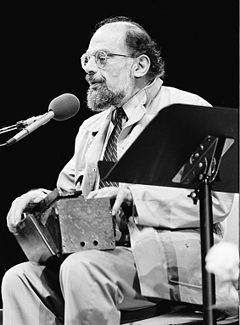This is your morning Open Thread. Pour your favorite beverage and review the past and comment on the future.
Find the past “On This Day in History” here.
October 8 is the 281st day of the year (282nd in leap years) in the Gregorian calendar. There are 84 days remaining until the end of the year.
On this day in 1871, flames spark in the Chicago barn of Patrick and Catherine O’Leary, igniting a 2-day blaze that kills between 200 and 300 people, destroys 17,450 buildings,leaves 100,000 homeless and causes an estimated $200 million (in 1871 dollars; $3 billion in 2007 dollars) in damages.
The Great Chicago Fire was a conflagration that burned from Sunday, October 8, to early Tuesday, October 10, 1871, killing hundreds and destroying about 4 square miles (10 km2) in Chicago, Illinois. Though the fire was one of the largest U.S. disasters of the 19th century, the rebuilding that began almost immediately spurred Chicago’s development into one of the most populous and economically important American cities.
On the municipal flag of Chicago, the second star commemorates the fire. To this day the exact cause and origin of the fire remain a mystery.
The fire started at about 9 p.m. on Sunday, October 8, in or around a small shed that bordered the alley behind 137 DeKoven Street.[3] The traditional account of the origin of the fire is that it was started by a cow kicking over a lantern in the barn owned by Patrick and Catherine O’Leary. Michael Ahern, the Chicago Republican reporter who created the cow story, admitted in 1893 that he had made it up because he thought it would make colorful copy.
The fire’s spread was aided by the city’s overuse of wood for building, a drought prior to the fire, and strong winds from the southwest that carried flying embers toward the heart of the city. The city also made fatal errors by not reacting soon enough and citizens were apparently unconcerned when it began. The firefighters were also exhausted from fighting a fire that happened the day before.
After the fire
Once the fire had ended, the smoldering remains were still too hot for a survey of the damage to be completed for days. Eventually it was determined that the fire destroyed an area about four miles (6 km) long and averaging 3/4 mile (1 km) wide, encompassing more than 2,000 acres (8 km²). Destroyed were more than 73 miles (120 km) of roads, 120 miles (190 km) of sidewalk, 2,000 lampposts, 17,500 buildings, and $222 million in property-about a third of the city’s valuation. Of the 300,000 inhabitants, 90,000 were left homeless. Between two and three million books were destroyed from private library collections. The fire was said by The Chicago Daily Tribune to have been so fierce that it surpassed the damage done by Napoleon’s siege of Moscow in 1812. Remarkably, some buildings did survive the fire, such as the then-new Chicago Water Tower, which remains today as an unofficial memorial to the fire’s destructive power. It was one of just five public buildings and one ordinary bungalow spared by the flames within the disaster zone. The O’Leary home and Holy Family Church, the Roman Catholic congregation of the O’Leary family, were both saved by shifts in the wind direction that kept them outside the burnt district.


 Welcome to the Stars Hollow Health and Fitness News weekly diary. It will publish on Saturday afternoon and be open for discussion about health related issues including diet, exercise, health and health care issues, as well as, tips on what you can do when there is a medical emergency. Also an opportunity to share and exchange your favorite healthy recipes.
Welcome to the Stars Hollow Health and Fitness News weekly diary. It will publish on Saturday afternoon and be open for discussion about health related issues including diet, exercise, health and health care issues, as well as, tips on what you can do when there is a medical emergency. Also an opportunity to share and exchange your favorite healthy recipes. 
 The first feature-length motion picture with synchronized dialogue sequences, its release heralded the commercial ascendance of the “talkies” and the decline of the silent film era. Produced by Warner Bros. with its Vitaphone sound-on-disc system, the movie stars Al Jolson, who performs six songs. Directed by Alan Crosland, it is based on a play by Samson Raphaelson.
The first feature-length motion picture with synchronized dialogue sequences, its release heralded the commercial ascendance of the “talkies” and the decline of the silent film era. Produced by Warner Bros. with its Vitaphone sound-on-disc system, the movie stars Al Jolson, who performs six songs. Directed by Alan Crosland, it is based on a play by Samson Raphaelson.
Recent Comments